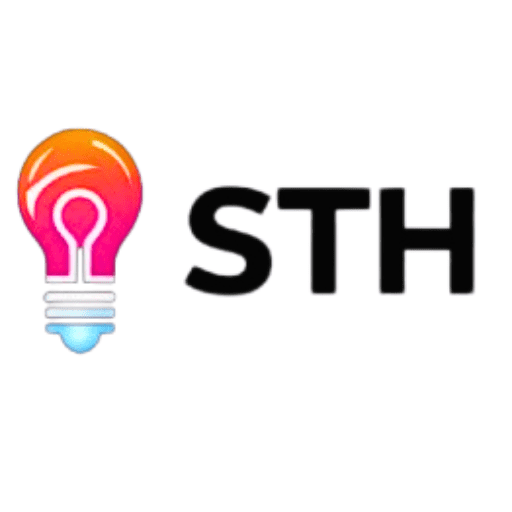How about Robinhood? These are words that every startup owner dreams of hearing in the world of startups. This leading fintech company has not only changed the trajectory of the global financial sector but has also brought the possibilities of investment to millions of its clients. Robinhood has successfully offered its commission-free trading model and easy-to-navigate platform, giving many of its investors new hope. It is about time we looked into the narrative of this groundbreaking start-up venture to see how it is still revolutionizing the world of finance.
The Genesis of Robinhood
Founded in 2013 by Vladimir Tenev and Baiju Bhatt, Robinhood was built on a simple yet revolutionary idea: introduce fairness into financial markets and enable everybody instead of a selected few to invest. The two founders, both from Stanford and with physics and mathematics education, noticed that conventional brokerage firms attract high fees which prevents small investors. They wanted to build a system that removed these restrictions, and where everyone with a smartphone could easily invest in stocks, options, and crypto.

About the Founders
Vladimir Tenev: Tenev was born in Bulgaria and later grew up in the United States; he earned his undergraduate degree in mathematics at Stanford University and went on to work on a Ph.D. in mathematics at UCLA. Robinhood owes its technical foundation to its academic background as an accredited investor and business-like approach.
Baiju Bhatt: The son of Indian immigrants, Bhatt also studied at Stanford where he received his master’s in mathematics. Personality: Bhatt became prominent because of Robinhood’s branding and interface that he oversaw.
Before that, they were involved in creating trading applications for financial organizations, which provided them with background knowledge of the defects of conventional trading platforms of brokerage firms. These experiences formed the basis on which Robinhood was founded with an aim, and a mission; to revolutionize finance.
What Sets Robinhood Apart?
The key selling proposition of the company is its mission of not charging commissions to customers. Though it is still relatively popular in the present epoch, when the site became operational; it was revolutionary. In this way, technology and the total disconnection of the middleman are the distinctive features of the Robinhood model for brokerage services.

Here are some key features that make Robinhood stand out:
User-Centric Design: Being mobile-based and well-presented with very simple and user-friendly interfaces, Robinhood has attracted a significant number of millions of customers including the young generation or the millennial and Gen Z customers.
Fractional Shares: By so doing it allows users to open the expensive stock for as low as $1, thus making investment cumbersome to the hilt.
Cryptocurrency Trading: Robinhood was one of the first traditional brokerage firms to offer cryptocurrency trading the growing demand for which it tapped into.
Educational Resources: For its part, the platform provides articles within the application, newsletters, and other tools to make a rational decision.
Robinhood and some cool things to know about the company
Origin of the Name: Their name also, Robinhood, was to represent the idea of taking something away from the greedy elite and giving it to everyone.
Waitlist Phenomenon: When this startup was first created, it quickly reached over a million people on its waiting list before the APP was ever released, proving the desire for commission-free trading.
Rapid User Growth: Robinhood started gaining popularity quite quickly and, in a few years, was associated with young people mostly – it had 31.2 million active users in 2021.
Pop Culture Influence: The app is easy to use, and it has received popularity in financial memes, podcasts, and even pop culture and that proves the point about being an app for millennials and Gen Z.
Disruptive Model: The global microscopic trading business model of Robinhood disrupted the conventional brokerage industry by charging zero commissions like Charles Schwab, E*TRADE, and Fidelity.
High-Profile Backing: Robinhood has secured funding from some of the world’s most reputable venture capital companies, in this case, Andreessen Horowitz and Sequoia Capital creating a competitive advantage in the fintech industry.
GameStop Saga: Robinhood only grabbed global attention during the event of short selling on GameStop at the beginning of 2021 which was a test of the power of users of the platform.
Unique Marketing: The traders that do trading using the Robinhood mobile app do not require advertisements as the app relies on social media and referrals.
Expanding Horizons: Besides stock trading, Robinhood has expanded its product offering by launching cash management accounts, subscriptions allowing regular investments, and retirement options, all to consolidate its clients’ financial needs.
IPO Milestone: The fintech unicorn had its public IPO in 2021 and this is considered one of the most anticipated IPOs in the future of fintech companies and comes out as an organization that is transformed from a startup to a listed institution.

This paper examines the impact of Climate Uncertainty on Financial Markets.
It has extended its impact to all parts of the financial industry due in part to Robinhood. Wall Street full–service brokers which used to stick to the traditional system only had to reduce their trading fees to compete with the discount brokers. Moreover, Robinhood also spurred the incidents of retail investor participation which has a rather considerable share in trading currently.
It also attracted a lot of attention towards the platform during the trading mania of GameStop in early 2021. Though provoking the discussions on manipulation of markets and restrictions of the platform, it reveals the role of Robinhood in the formation of the market.
Challenges and Criticisms
However, like any other company that has flourished in the market, Robinhood has not been exempted from some emergent challenges. The company has been criticized for:
Gamification: Detractors claim that the app is specifically built to turn users into repeat traders without much rational thought behind their actions – or gaming.
Outages: Technical glitches during peak trading always make users to be unhappy.
Regulatory Scrutiny: Robinhood has become involved in some of the most high-profile market manipulation cases and has prompted regulators to request more bans.
The Road Ahead
This story is not over for Robinhood yet. Over time, the company is diversifying its services to other services it is planning to offer such as retirement accounts, and cash management among others. July 2021 saw it go public, although it started as a smaller company that would launch sneaky attacks on its competitors.
Thus, the fintech market remains saturated, and newcomers like E*TRADE, Fidelity, and others will continue the battle for market share. Nonetheless, it can be seen that Robinhood has the capacity to remain the flagship of Financial Technology due to its innovation and future flexibility.

Conclusion
For such a reason, Robinhood has significantly transformed the way individuals engage with financial markets. This way, unveiled by traditional restrictions, the platform encourages millions of people to take their investments into their own hands. Of course, numerous obstacles still linger but inarguably Robinhood has changed the concept of the financial industry. For cases of upcoming businessmen and businesswomen, this concise analysis plays a significant role in reminding of how a vision changed an industry.
Regardless of whether you are an investor, a technology or business innovation lover, or an entrepreneur Robinhood has a lot of lessons to teach about the disruptive power and what it means to put the user first. As we look to the future, one thing is clear: Now, Robinhood can confidently be dubbed as a leader in the already crowded field of fintech startups.












